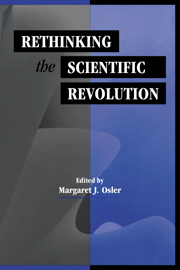
Rethinking the Scientific Revolution
$58.99 (C)
- Editor: Margaret J. Osler, University of Calgary
- Date Published: March 2000
- availability: Available
- format: Paperback
- isbn: 9780521667906
$
58.99
(C)
Paperback
Other available formats:
Hardback, eBook
Looking for an examination copy?
This title is not currently available for examination. However, if you are interested in the title for your course we can consider offering an examination copy. To register your interest please contact [email protected] providing details of the course you are teaching.
-
The Scientific Revolution (roughly 1500 to 1700) is considered to be the central episode in the history of science, the historical moment when "modern science" and its attendant institutions emerged. This book challenges the traditional historiography of the Scientific Revolution. Starting with a dialogue between Betty Jo Teeter Dobbs and Richard S. Westfall, whose understanding of the Scientific Revolution differs in important ways, the papers in this volume reconsider canonical figures, their areas of study, and the formation of disciplinary boundaries during this seminal period of European intellectual history.
Read more- Good overview of recent scholarship and trends in the field
- Covers a central episode in the history of science; the Scientific Revolution
- Challenges traditional historiography of the Scientific Revolution
Reviews & endorsements
"This is now the place to look for guidance on whether (and how) we may still speak of a scientific revolution in 17th-century Europe....especially illuminating on contrasts between Boyle and Newton in their alchemy, theology and epistemology. A fitting tribute to Betty Jo Dobbs and Richard S. Westfall, whose competing views set an attractive agenda." John Brooke, Oxford University
See more reviews"The Scientific Revolution still divides historians into those who see it as an undeniably real period of historical change comparable with the Renaissance and the Reformation, and those who see it merely as a term of convenience for historians of science. In this important new collection each of the authors reassesses the Scientific Revolution, some in the widest possible terms, others by focussing upon one episode or one individual, with a view to redressing this problem. The result should be required reading for all those interested in the formation of the modern world. Margaret Osler has done well to bring together such an impressive group of contributors, from the most promising to the most distinguished." John Henry, University of Edinburgh
"...this is a rich and stimulating collection that shoulf compel any historian to abandon retailing the traditional notion of the 'Scientific Revolution.'" American Historical Review
"...the reader can find here much new information and many interpretations about the roles in the birth of modern science played by lesser known individuals...and by disciplines and topics usually seen now, but not then, as extra-scientific." The Review of Metaphysics
Customer reviews
Not yet reviewed
Be the first to review
Review was not posted due to profanity
×Product details
- Date Published: March 2000
- format: Paperback
- isbn: 9780521667906
- length: 356 pages
- dimensions: 230 x 153 x 21 mm
- weight: 0.485kg
- contains: 5 b/w illus.
- availability: Available
Table of Contents
Introduction: the canonical imperative: rethinking the scientific revolution Margaret J. Osler
Part I. The Canon in Question:
1. Newton as final cause and first mover Betty Jo Teeter Dobbs
2. The scientific revolution reasserted
Part II. Canonical Disciplines Reformed:
3. The role of religion in the Lutheran response to Copernicus Peter Barker
4. Catholic natural philosophy: alchemy and the revivication of Sir Kenelm Digby Bruce Janacek
5. Vital spirits: redemption, artisanship, and the new philosophy of Early Modern Europe Pamela Smith
6. 'The terriblest eclipse that hath been seen in our days': Black Monday and the debate on astrology during the Interregnum William E. Burns
7. Arguing about nothing: Henry More and Robert Boyle on the theological implications of the void Jane E. Jenkins
Part III. Canonical Figures Reconsidered:
8. Pursuing knowledge: Robert Boyle and Isaac Newton Lawrence M. Principe
9. The alchemies of Robert Boyle and Isaac Newton: alternative approaches and divergent deployments
10. The Janus faces of science in the seventeenth century: Athanasius Kircher and Isaac Newton
11. The nature of Newton's 'holy alliance' between science and religion: from the scientific revolution to Newton (and back again)
12. Newton and Spinoza and the Bible scholarship of the day Richard H. Popkin
13. The fate of the date: the theology of Newton's Principia revisited
Part IV. The Canon Reconstructed:
14. The truth of Newton's science and the truth of science's history: heroic science at its eighteenth-century formulation.
Sorry, this resource is locked
Please register or sign in to request access. If you are having problems accessing these resources please email [email protected]
Register Sign in» Proceed
You are now leaving the Cambridge University Press website. Your eBook purchase and download will be completed by our partner www.ebooks.com. Please see the permission section of the www.ebooks.com catalogue page for details of the print & copy limits on our eBooks.
Continue ×Are you sure you want to delete your account?
This cannot be undone.
Thank you for your feedback which will help us improve our service.
If you requested a response, we will make sure to get back to you shortly.
×
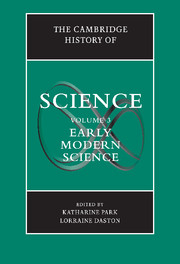
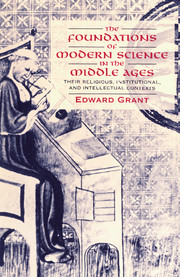
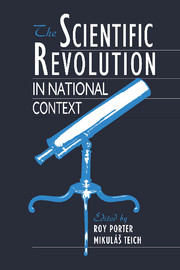
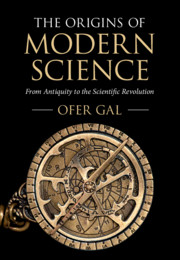
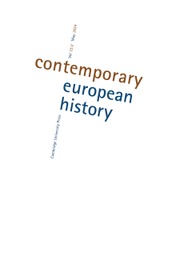
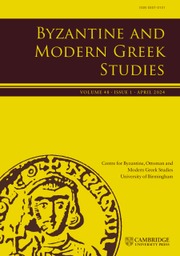
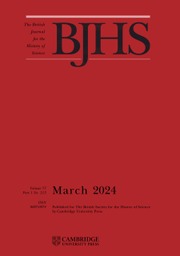
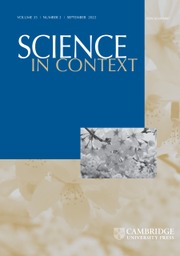
.jpg)
.jpg)

